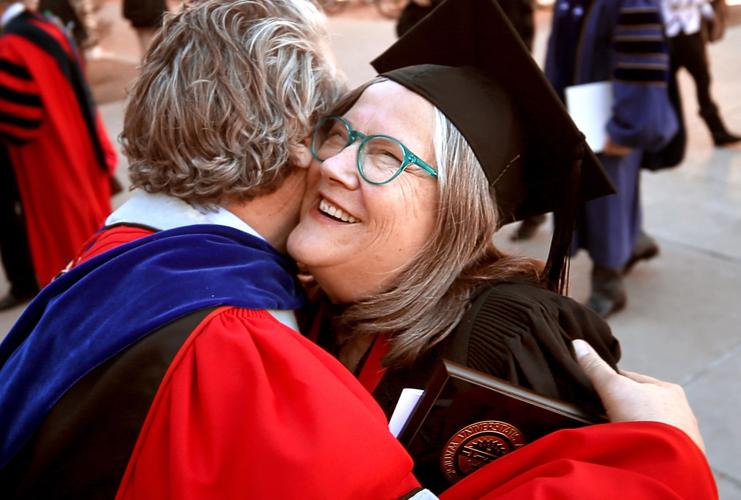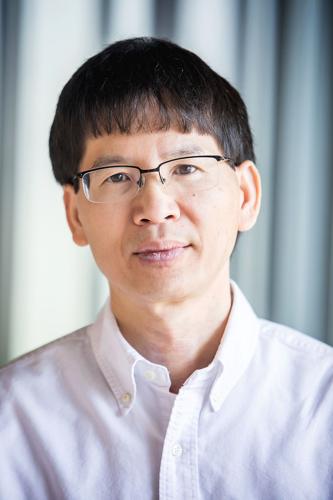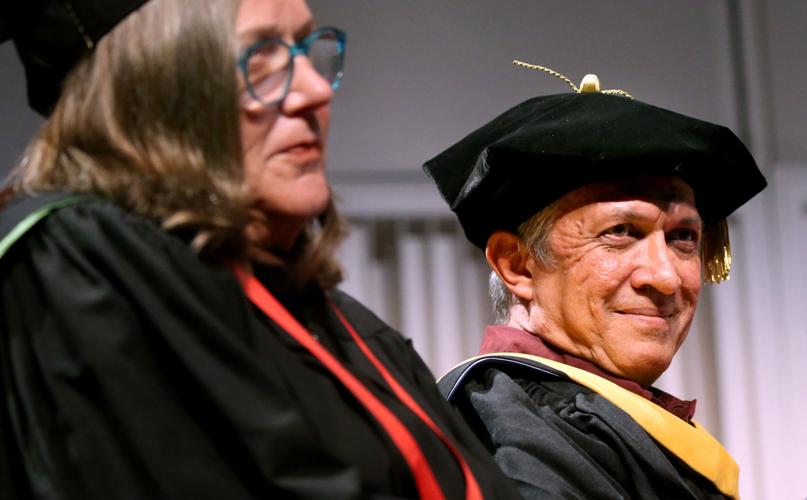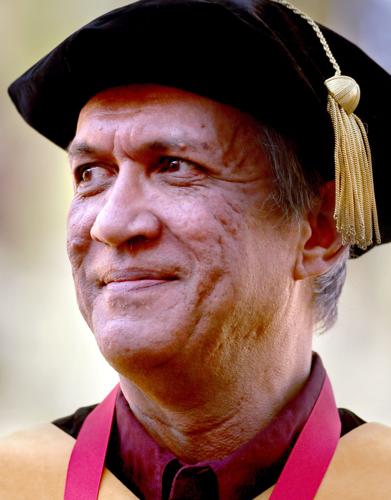The University of Arizona has inducted three new regents’ professors, the state’s highest faculty rank.
The three are: Alison Hawthorne Deming, a poet and essayist with a passion for science and social justice; Hoshin Gupta, whose approach to modeling “set the standard in hydrology over the last 30 years”; and Pham Huu Tiep, an “elegant and skillful” mathematician and leading expert in a field called group theory.
The honor includes a pay bump and is awarded to only 3 percent of UA faculty “with exceptional achievements that have brought them national or international recognition,” according to the UA Office of the Provost. “Regents’ professors are expected to exemplify the highest objectives and standards of the university through their scholarship, research or creative activities and teaching.”
The Regents’ Professor Advisory Committee reviews nominations, then makes recommendations to the university president. The president then submits his selections to the Arizona Board of Regents for approval.
The new regents’ professors agree they are honored to receive recognition after many years of dedication to the UA and the community.
Pham Huu Tiep
Tiep studies group theory — a branch of abstract algebra and “is probably the world leader at the moment in this sort of enterprise,” said Alan Newell, regents’ professor of mathematics.
The classification of finite simple groups in mathematics was a pivotal achievement decades ago, but typical of the sciences, this generated even more questions.
“Tiep has probably been the most successful in resolving secondary questions that came out of this,” Newell said. “He’s a very modest fellow and quiet with a sense of humor. For such a distinguished individual, he’s also a good colleague.”
Tiep is currently on sabbatical and could not be reached for comment.
Hoshin Gupta
Gupta grew up in hot Bombay, now Mumbai, India, and got his doctorate in chilly Cleveland. He happily made Tucson his home in 1983.
He was drawn by the UA’s hydrology department’s reputation as the first and one of the best in the country when it broke off from the geology department in 1966. Fifty years later, the department merged with atmospheric sciences.
During his tenure, Gupta’s work “enhanced the ability to use models for learning and prediction” in the field, said Victor Baker, regents’ professor of hydrology and atmospheric sciences, geosciences and planetary sciences.
In 2006, Gupta was named the Salt River Project Professor of Technology, Public Policy and Markets for studying how climate change will affect Arizona’s water supply.
“Our role as scientists is not so much to give policymakers the right answer but is to help educate them about the richness of the problem,” he said. “Making policy decisions is not a scientific problem, it’s a human problem. You want to inform that decision with the best possible scientific information that you have.”
For example, while many worried about less rainfall and more evaporation, a more critical issue brought about by warmer temperatures is reduced snow pack, which serves as natural water storage.
Besides research and work on public policy issues, “He has five times received his department’s annual award for teaching excellence, and he advised more than 100 graduate students,” said W. James Shuttleworth, regents professor emeritus of hydrology and atmospheric sciences.
“It is rare that such a brilliant scientist as professor Gupta with such widespread recognition and international respect is also a truly brilliant teacher and educator” capable of inspiring students, Shuttleworth said.
As a reprieve from academia, he likes to work with his hands and play the drums in a band.
Alison Hawthorne Deming
Deming, who has been studying jazz piano for five years, joked that she and Gupta could start a regents’ professors’ jazz combo.
Deming’s writing has been inspired by science since childhood, where she was surrounded by books ranging from literature to encyclopedias and field guides.
“I grew up in the old New England tradition that you should be a naturalist in your own backyard,” she said. To this day, the wonder, mystery and discovery of science feeds her art.
But over time, “My concern has grown about the fate of the natural world and the problems of social justice that seem to be getting worse,” she said.
She encourages artists to “have scientists’ backs” because, she said, “We live in a time where science is dismissed and denigrated, and it’s absolutely inappropriate in a democratic society.”
Deming came to the UA in 1990 to help build up the Poetry Center. She directed it for 10 years before joining the faculty.
She was appointed the Agnese Nelms Haury Chair of Environment and Social Justice in 2015, and is an affiliate faculty member in the Institute of the Environment.
As a teacher, she wants students to understand art’s role in society and said, “Helping others do the thing that you love is — it’s just a beautiful job.”
During summers, she takes graduate students to a cottage on a fishing island in Canada’s Bay of Fundy, which partially inspired her next book.
The book, “Lament for the Makers,” is about fishing as the islanders respond to the challenges of climate change and also about her grandmother and great-grandmother, who were both dressmakers with salons in Paris and New York.
These are “two different cultures of people that were very inventive who figured out a really satisfying way to make a living in the circumstances of their time and place, then the kind of sadness of seeing those ways of life leave,” she said.
She’s also thrilled about her new title: “It means a great deal to me to be recognized and be invited into a community of really remarkable scholars and leaders that are the part of the regents’ professorship.”








